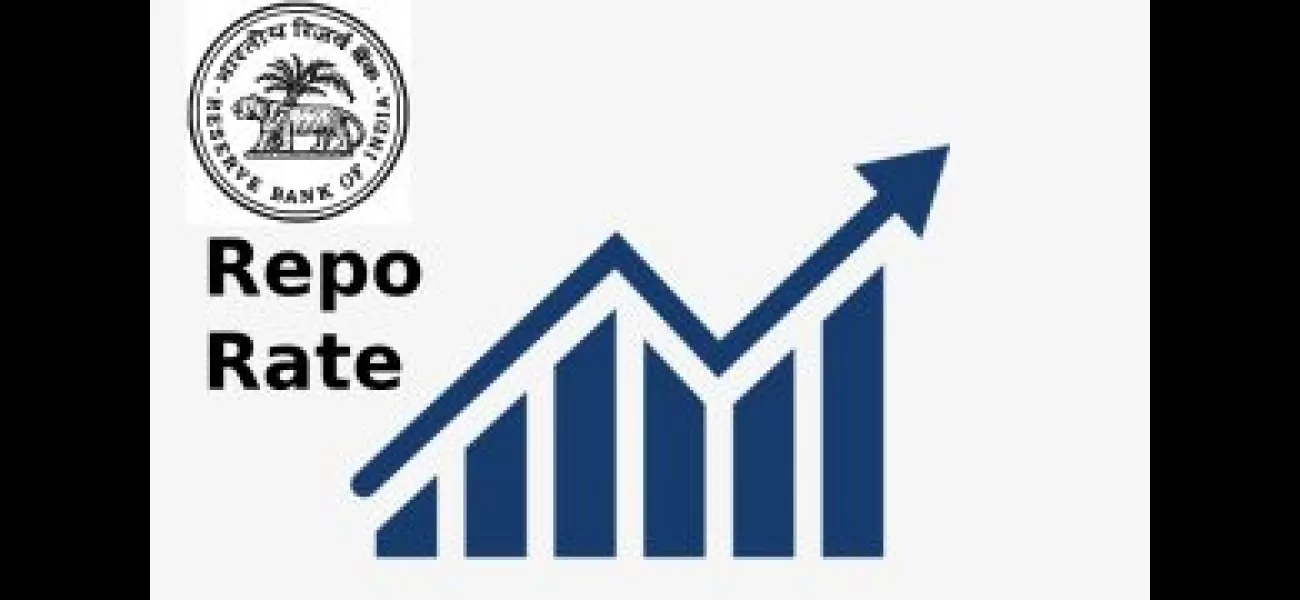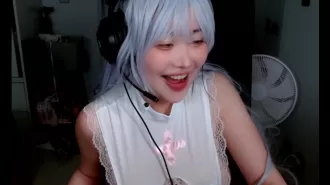Experts predict central bank to lower interest rate in Q2 of 2025.
Experts and bankers in New Delhi are optimistic about the market's stability after the RBI's recent meeting, and anticipate a potential interest rate cut later in the year.
June 7th 2024.

In the bustling city of New Delhi, the Reserve Bank of India (RBI) held its monetary policy committee meeting on Friday, marking the first one after the recent general elections. This decision has brought a sense of confidence and stability to the market, with many bankers and economists anticipating a decrease in the benchmark interest rate in the latter half of the fiscal year 2025.
As expected, the RBI kept its key interest rate at 6.5%, with a focus on keeping inflation in check amidst a strong economic growth that could potentially provide room for the new Modi government to implement reforms. The central bank also maintained its projection for retail inflation at 4.5% for the current fiscal year, assuming a normal monsoon. However, it did highlight the need for close monitoring of uncertainties regarding the outlook of food prices.
Dharmakirti Joshi, the Chief Economist at CRISIL Ltd, stated that they now predict two rate cuts starting in October, as opposed to the three they had foreseen earlier. On the other hand, Ajay Kumar Srivastava, the Managing Director and CEO of Indian Overseas Bank, believes that the RBI's focus on "withdrawal of accommodation" in its decision reflects a balanced approach towards sustaining economic growth while managing inflation.
The RBI's decision to extend e-mandates for recurring payments to fastags, introduce auto replenishment for UPI-like wallets, and establish a digital payments intelligence platform has been met with positivity by experts in the industry. Rajiv Sabharwal, the Managing Director and CEO of Tata Capital, stated that the first MPC post-election has instilled confidence and stability in the market, with the steady repo rate of 6.5% hinting towards a balance between growth and inflation.
According to Achala Jethmalani, an Economist at RBL Bank, considering India's growth and inflation dynamics, a rate cut can be expected in the fourth quarter of the fiscal year 2025, with a change in policy stance by December 2024. The progress of the southwest monsoon and the upcoming budget in July will play a critical role in the August MPC policy.
Aditi Nayar, the Chief Economist and Head of Research and Outreach at ICRA Ltd, believes that the status quo from the MPC was expected, with the only surprise being the change in voting on the stance to 4:2. Despite this, the 10-year G-sec yield remained above 7%, indicating that the start of the rate cut cycle may still be a distant reality.
Madan Sabnavis, the Chief Economist at Bank of Baroda, raised concerns about food inflation, especially in light of the recent heatwave that has led to an increase in prices of horticulture products. However, with the growth being secure, the RBI has room to delay rate cuts for now. He also emphasized the significance of the Governor clarifying that decisions are based on local conditions, rather than being influenced by statements from the Federal Reserve.
Rohit Garg, the Co-Founder and CEO of Olyv, believes that the RBI's decision highlights its commitment to maintaining stability amidst robust economic growth and a slight easing of inflation to 4.83%. He also noted that the Indian government's efforts to reduce the fiscal deficit, along with support from RBI dividends, further strengthen economic stability. Despite revising the GDP forecast for fiscal year 2025 to 7.2%, the RBI chose to keep the consumer inflation forecast unchanged.
Anantharam Varayur, the Co-Founder of Manasum Senior Living, stated that the RBI's decision is particularly encouraging for the senior living residential projects sector. He believes that the unchanged repo rate provides much-needed stability, which could attract more investments into senior living projects as developers can plan their finances more effectively.
The Monetary Policy Committee, which consists of three RBI members and an equal number of external members, decided to keep the repo rate unchanged at 6.50% for the eighth consecutive policy meeting. The committee also maintained its relatively hawkish stance of "withdrawal of accommodation." However, there were signs of a more divided policy committee, with one additional member voting for a softer stance and policy direction. This decision comes just days before Narendra Modi assumes the office of Prime Minister for the third time, with a smaller-than-expected election victory that has forced his party to share power in a coalition government.
As expected, the RBI kept its key interest rate at 6.5%, with a focus on keeping inflation in check amidst a strong economic growth that could potentially provide room for the new Modi government to implement reforms. The central bank also maintained its projection for retail inflation at 4.5% for the current fiscal year, assuming a normal monsoon. However, it did highlight the need for close monitoring of uncertainties regarding the outlook of food prices.
Dharmakirti Joshi, the Chief Economist at CRISIL Ltd, stated that they now predict two rate cuts starting in October, as opposed to the three they had foreseen earlier. On the other hand, Ajay Kumar Srivastava, the Managing Director and CEO of Indian Overseas Bank, believes that the RBI's focus on "withdrawal of accommodation" in its decision reflects a balanced approach towards sustaining economic growth while managing inflation.
The RBI's decision to extend e-mandates for recurring payments to fastags, introduce auto replenishment for UPI-like wallets, and establish a digital payments intelligence platform has been met with positivity by experts in the industry. Rajiv Sabharwal, the Managing Director and CEO of Tata Capital, stated that the first MPC post-election has instilled confidence and stability in the market, with the steady repo rate of 6.5% hinting towards a balance between growth and inflation.
According to Achala Jethmalani, an Economist at RBL Bank, considering India's growth and inflation dynamics, a rate cut can be expected in the fourth quarter of the fiscal year 2025, with a change in policy stance by December 2024. The progress of the southwest monsoon and the upcoming budget in July will play a critical role in the August MPC policy.
Aditi Nayar, the Chief Economist and Head of Research and Outreach at ICRA Ltd, believes that the status quo from the MPC was expected, with the only surprise being the change in voting on the stance to 4:2. Despite this, the 10-year G-sec yield remained above 7%, indicating that the start of the rate cut cycle may still be a distant reality.
Madan Sabnavis, the Chief Economist at Bank of Baroda, raised concerns about food inflation, especially in light of the recent heatwave that has led to an increase in prices of horticulture products. However, with the growth being secure, the RBI has room to delay rate cuts for now. He also emphasized the significance of the Governor clarifying that decisions are based on local conditions, rather than being influenced by statements from the Federal Reserve.
Rohit Garg, the Co-Founder and CEO of Olyv, believes that the RBI's decision highlights its commitment to maintaining stability amidst robust economic growth and a slight easing of inflation to 4.83%. He also noted that the Indian government's efforts to reduce the fiscal deficit, along with support from RBI dividends, further strengthen economic stability. Despite revising the GDP forecast for fiscal year 2025 to 7.2%, the RBI chose to keep the consumer inflation forecast unchanged.
Anantharam Varayur, the Co-Founder of Manasum Senior Living, stated that the RBI's decision is particularly encouraging for the senior living residential projects sector. He believes that the unchanged repo rate provides much-needed stability, which could attract more investments into senior living projects as developers can plan their finances more effectively.
The Monetary Policy Committee, which consists of three RBI members and an equal number of external members, decided to keep the repo rate unchanged at 6.50% for the eighth consecutive policy meeting. The committee also maintained its relatively hawkish stance of "withdrawal of accommodation." However, there were signs of a more divided policy committee, with one additional member voting for a softer stance and policy direction. This decision comes just days before Narendra Modi assumes the office of Prime Minister for the third time, with a smaller-than-expected election victory that has forced his party to share power in a coalition government.
[This article has been trending online recently and has been generated with AI. Your feed is customized.]
[Generative AI is experimental.]
0
0
Submit Comment





